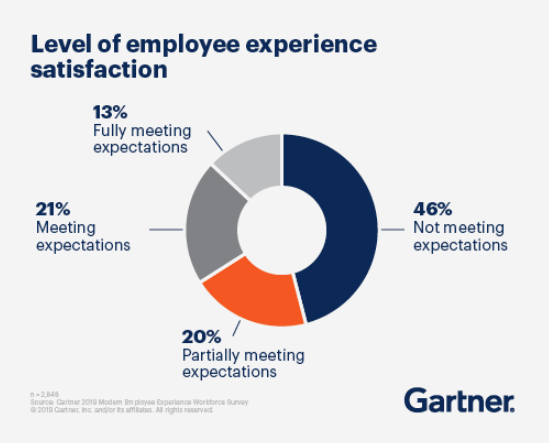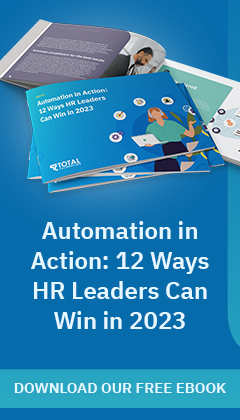In the last few decades, the world of work evolved faster than ever before, adapting to the generational shift, HR technology rise, and the COVID-19 pandemic. Nowadays, most employers are aware of the importance of their workers’ satisfaction as it impacts their productivity, performance, and the company’s bottom line. The workforce is critical for business success, and their needs and expectations are just as vital for a company as customers.
As a result, companies that want to ensure success and prevent turnover strive to provide their employees with competitive benefits, fair conditions, and various learning and well-being programs. But the pandemic made this more challenging as many countries, including Australia and New Zealand, face talent and skills shortages.
Employers have to improve their strategies to attract qualified candidates and maintain their interest, which often depends on branding and reputation. Because of that, organisations must provide their workers with a great employee experience that encourages them to become brand ambassadors.
That generates various advantages for the workplace and company.
The Importance of a Great Employee Experience
Even though employee experience became one of the priorities in the work landscape, only 13 per cent of workers find that their employers fully meet their expectations. On the other side, 46 per cent are highly dissatisfied with their experience and wish companies would invest more into meeting their standards.
A 2021 Gartner research found that only nine per cent of Australian employees find their job engaging. It’s no surprise that no more than 16 per cent would go above and beyond for their employer.

Despite the increasing awareness of why a good employee experience matters, many companies still fail to recognise its importance and implement satisfactory conditions, technologies, and programs for their workers, which can result in disengagement, turnover, and revenue losses.
Companies must understand the importance of a stellar employee experience to incentivise workers to stay with them for a long time and feel happy doing their jobs.
Performance Boost
Employee experience presents a unique journey of each worker within their workplace, covering all touchpoints, including the selection process and end of tenure. As such, it has the power to determine how devoted employees will be and whether they’ll be passionate about their job.
When companies provide an employee experience with personalised initiatives and performance management, they can track their employees’ progress, measure their success, and help them set achievable goals. That also allows them to gear them toward business objectives and show workers how their contribution affects the bigger picture.
In the process, employees also get a better understanding of the company’s values, culture, allowing them to improve their skills and boost performance.
Increased Motivation
Employee motivation is critical for successful business outcomes and passion that inspires workers to achieve the best results and go the extra mile. But the overall employee experience plays a crucial role in how motivated they’ll be to perform their daily tasks and take the initiative.
Companies must introduce engaging assignments, learning opportunities, and recognition initiatives to ensure workers are excited about their jobs and receive regular feedback and skill development. That helps build an intrinsic motivation to provide stellar results instead of completing tasks only due to external pressure.
Improved Customer Satisfaction
Happy employees are passionate about their jobs, which improves the quality of their services and product delivery. They are also more engaged in communication with the customers, making them great brand ambassadors and incentivising buyer loyalty.
Employee Turnover Prevention
A great employee experience covers all the necessary elements for employee retention, including recognition, career development opportunities, and thorough onboarding. Companies should have respectful communication with workers before they officially join the team to convey a sense of commitment and appreciation.
As a result, they will form a positive first impression, preventing them from considering another employer or seeking new job opportunities.
Although these benefits are invaluable for business, employers and HR professionals go through various stages to ensure a good employee experience.
5 Tips on How to Provide a Great Employee Experience
Employee experience was traditionally among the most significant elements for HR departments in the last few years. For instance, 98 per cent of Australian talent professionals believed it would be beyond important in the future of recruitment in 2019.
But the pandemic revealed various gaps in organisations’ strategies, especially in the area of employee experience. Moreover, workers’ expectations changed, making them more selective and determined to work in companies that put them first.
That brought employee experience to the forefront, and 92 per cent of HR professionals see it as a priority in 2021. But it’s a long road from identifying it as critical to developing and rolling out efficient strategies.
Here’s what companies can do to make sure their workers have a great experience.
1. All-encompassing Onboarding
A consistent and thorough onboarding process helps employees develop a sense of belonging in their new workplace. It helps them meet their job role, managers, and co-workers.
Thus, 77 per cent of workers who had a formal onboarding process hit their performance objectives, and 54 per cent shows higher levels of engagement. But it comes with various challenges that hinder successful delivery, such as lack of technology for automation and organisation.
Employers should consider leveraging HR technology to provide seamless onboarding, but they should also ensure they aren’t focusing on paperwork solely. Instead, they should utilise engaging training, welcome kits, and team buildings to introduce new workers to the team and company.
2. Consistent and Transparent Communication
Regular and open communication is crucial for instilling trust. Workers should know they can reach out to their managers and HR with ease and without holdbacks.
To achieve that, companies should be transparent about all updates, changes, and novelties that affect employees and their future. Moreover, they should implement an efficient and modern infrastructure that allows seamless communication across all departments and teams.
Employees should have easy access to smooth platforms that enable real-time interaction and information exchange. But companies should also encourage hires to communicate freely and express their ideas and suggestions.
3. Career Development Opportunities
One needs to know their contribution and effort are meaningful and can provide them with better opportunities in the future. It’s why employee learning and career development are essential for a great employee experience.
Over 60 per cent of HR professionals recognise skills growth as an increasing expectation among workers. Yet, they should be aware that the learning programs they implement should be up-to-date because 33 per cent of skills needed three years ago are no longer relevant.
Because of that, employers should adopt a dynamic approach to their career development programs, meaning they should respond dynamically to changing skills needs. Instead of predicting future trends, companies should anticipate abilities shifts as they occur and develop them at the time of need.
Employers should also listen to what employees want and provide them with personalised opportunities that help them reach desired job roles, positions, and goals. Plus, workers should receive feedback regularly and receive recognition for their achievements and upskilling.
4. Peer-to-peer Support
In the post-pandemic era, empathy and human connections will have priority. After a crisis, people need support and safety, which applies to employees too.
That also makes a large part of the employee experience as having close relations with co-workers and feeling accepted could be the deciding factor in whether a worker will stay. Companies should enable peer-to-peer support by establishing networks, resource groups, and team buildings.
That helps create a sense of unity and belonging that ensures workers can work together regardless of their differences.
HR Technology
The world of work is ever-evolving, requiring companies to keep up with the times and leverage available tools to reinforce employee experience and all its touchpoints. HR technology allows employers to personalise recruitment and strengthen the relationship with candidates.
With the right tech solutions, HR professionals can foster consistent and open communication, keep employees updated, drive diversity initiatives, and implement learning programs. Besides, they can also use digital platforms to provide regular feedback and enable an appraisals system.
But HR Technology also provides a human-centric approach to employee experience by nurturing transparency and tight-knit community in the workplace.
Tech Solution that Streamlines Employee Experience
Nowadays, HR technology is nearly inseparable from an all-encompassing employee lifecycle. Automation and ongoing tech evolution will only reinforce this connection, turning digital platforms into loyal business and human resources liaisons.
A thorough, consistent, and trusted technology is essential for a human-centric employee experience. That’s one of our principal missions at Total Calibration. Our Employee Experience Platform (EEP) helps mid-sized organisations invested in Microsoft do more with less by inspiring staff, delighting customers and building organisational resilience.
So take the first step to delivering a stellar employee experience and click here to contact us so we can understand your challenges and goals and assess if we can assist you in achieving them!
About the author
Daniel Campbell is a Business Development Manager at Total Calibration and studying software engineering. His passion for helping organisations do more with less through continuous innovation flows through in the expert content he writes.



You must be logged in to post a comment.